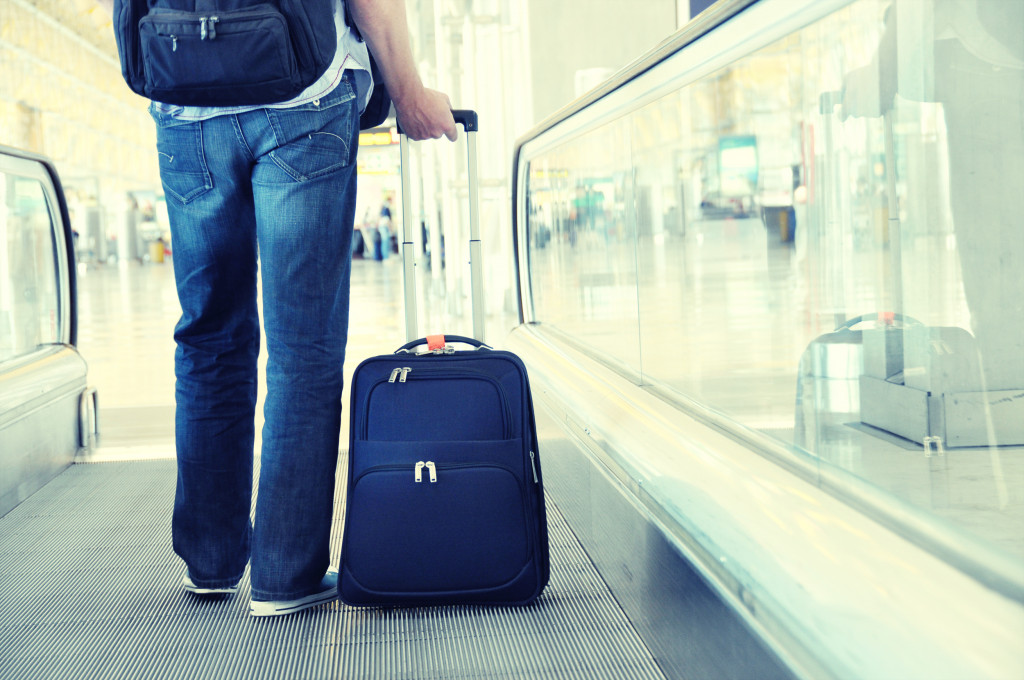• Get a check-up and visit the dental clinic before traveling to ensure your health.
• Check travel advisories for any recommended or required vaccinations and research the local healthcare system.
• Pack medications for any pre-existing medical conditions, painkillers, and other necessary items to treat any illnesses.
• Stay hydrated and take precautionary measures such as washing your hands frequently or using bottled water.
Traveling to a foreign country can be a life-changing experience, but ensuring your health is in tip-top condition before your travels is an essential aspect of preparation. The excitement surrounding traveling to new foreign destinations can make some travelers forget vital health checks they must carry out before going to a different country. Whether it is a quick weekend getaway or a more extended vacation, it is crucial to prioritize your health.
This post will discuss the practical health steps travelers can take to ensure they remain healthy throughout their travels.
1. Get a Check-Up
Visit your healthcare provider or doctor to ensure that you are healthy. Even if you feel fine, there may be underlying conditions that could affect your travels. In some cases of long-distance travel, you may need to get some medical clearance or vaccine records. Speak to your doctor to get more information.
It would be best to visit your local dental clinic to ensure your teeth are healthy. If you suffer from any dental conditions, ensure that you get them addressed before you travel, as this can help avoid any dental issues abroad. Ask your dentist for advice on what to do if you experience dental problems while away.

2. Check for Travel Advisories
Before embarking on any journey, take some time to research and review the travel advisories for your destination. Some countries have certain recommended or required vaccinations that you need to get before traveling. Check online, speak to your local travel clinic about any suggested vaccinations recommended for your destination, or check if any significant illnesses are present.
It’s also best to research the local healthcare system and the quality of healthcare so you know what is available in an emergency. Different countries may also have specific quarantine rules or other health-related regulations, so make sure you are aware of these. It would help if you also researched any potential health and safety risks that may be present at your destination.
3. Pack Medication
After consulting with your doctor, remember to pack medications for any pre-existing medical conditions or illnesses. Ensure that you carry enough medication to last you throughout the trip. It’s also helpful to bring some general medication and tools for different situations. Here are some of them:
a. Painkillers
When taking painkillers, it’s essential to ensure that you have an adequate supply. Always take the prescribed dosage and consult a doctor if your condition is not improving or if you experience any side effects.
b. Allergies and Asthma
If you suffer from allergies, asthma, or other respiratory conditions, it’s important to carry your prescribed medication with you and ensure you have access to an inhaler. Make sure to also carry a letter from your doctor detailing your condition and any necessary medication.
c. Bandages
It’s always useful to carry some bandages with you in an emergency. Bandages come in various sizes, so remember to get the right type for your needs.
d. Antibiotics
Your doctor may recommend that you take some antibiotics with you in case of any infections or illnesses that may arise. Some countries may also require that you have a prescription for any antibiotics or other medications.

4. Stay Hydrated
Dehydration is a prevalent issue for travelers. Changes in climate, altitude, and different food and water could cause digestive problems. Always drink plenty of water, increase your fluid intake, and avoid excessive amounts of alcohol or caffeine, which can dehydrate you even further.
5. Take Precautionary Measures
It’s crucial to remain vigilant about hygiene when traveling to unfamiliar areas. Wash your hands frequently and carry a sanitizer for times when washing isn’t possible. Additionally, try to avoid buffet-style meals or foods that could have been sitting out for a while. You may also choose to use bottled water or purchase a water purification system if you are unsure about the safety of your water source.
Traveling and exploring new places can be an incredible experience, but it’s essential to prioritize your health. Taking precautionary measures can help you make the most of your adventure without fear of getting sick. Simple steps like getting a check-up, researching travel advisories, packing sufficient medications, and staying hydrated can help ensure that you stay healthy during your travels. With the right preparation, you can set out on your journey with peace of mind.



